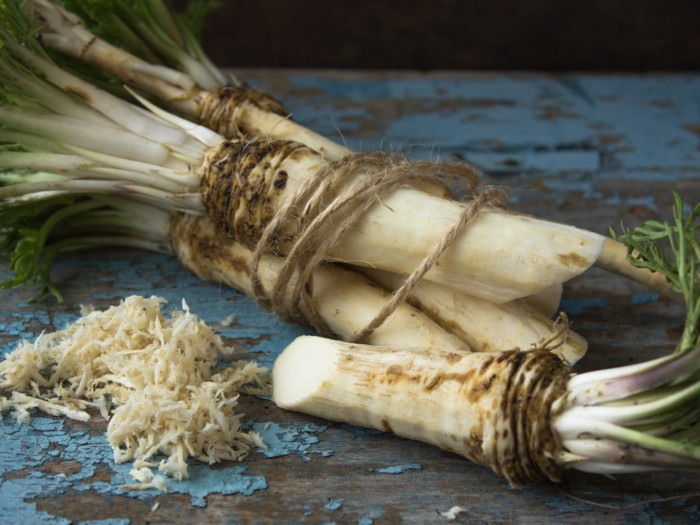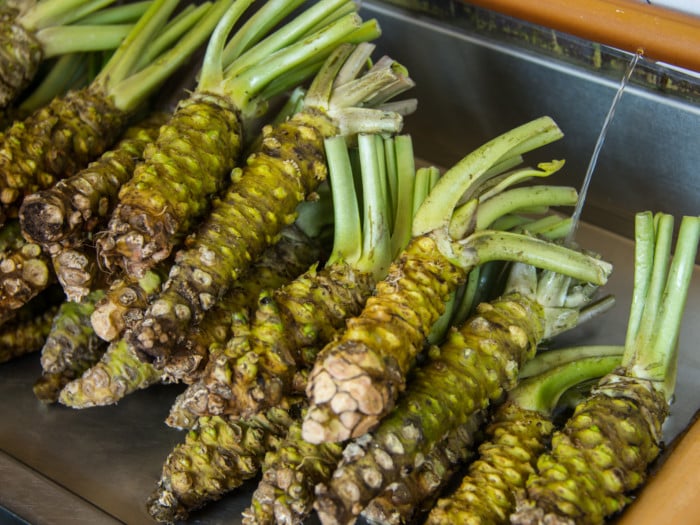Being able to identify good horseradish substitutes may be critical if you’re cooking for someone who can’t handle the heat, or who has a particular food allergy. Horseradish substitutes come in a variety of forms, although the unique flavor profile can be difficult to match.
Horseradish Substitutes
Horseradish is a white or pale yellow root vegetable that is traditionally minced or pureed to make the spicy condiment we’re familiar with today. It is extremely popular in Eastern European cooking, particularly for inclusion in meat dishes. In the UK, horseradish sauce is a blend of pureed horseradish and vinegar that is used as a topping for roast beef. [1]
Horseradish is very easy to find in most grocery stores, but if you’re stuck and need a substitute right away, here are some other spicy flavors that might work.

Freshly grated horseradish is far more potent than the store-bought bottled version. Photo Credit: Shutterstock
Wasabi
Wasabi is from the same plant family as horseradish and mustard. It is native to Japan, and most people are familiar with it as a spicy bright green condiment that comes with sushi. Real wasabi is actually slightly milder than horseradish, but most wasabi sold in stores is actually made with horseradish, as real wasabi is expensive and scarce. So, if you have some wasabi paste or powder in the cupboard, chances are that you’ve actually got some horseradish after all! [2]
Spicy Brown Mustard
Mustard is definitely milder than horseradish, and not as hot. However, as a substitute for the bright tangy flavor and earthy notes, it does well. It also goes well with most meat dishes that use horseradish. Mustard holds all its heat in its seeds, so the grainier the mustard available, the better. This is a good substitute when cooking for someone who considers horseradish a bit too pungent.

Wasabi is a popular condiment in Japanese cuisine. Photo Credit: Shutterstock
Ginger and Mustard Seed
Ginger has the tangy heat and piercing intensity of horseradish, but it’s notably sweeter. That sweetness can throw off the flavor of whatever you’re cooking, so think about the recipe before you add it in. For instance, this substitution might work with Asian dishes but is probably not a good fit for Beef Wellington. Mixing grated ginger with mustard seeds can tone down that sweetness and bring more of an earthy spiciness. [3]
Black Radish
Black radishes are dark-colored and dusty looking and are certainly not as pretty as red radishes. Even so, black radishes are related to mustard, wasabi, and horseradish. They carry a lot of their heat and bite in their skin, so wash them thoroughly, but leave that sooty black peel intact to get the most heat out of them. If you’re unable to find black radishes, grated red radishes will give your dish an additional bite, but are much milder and sweet. [4]
Have you tried any of these in your cooking?
